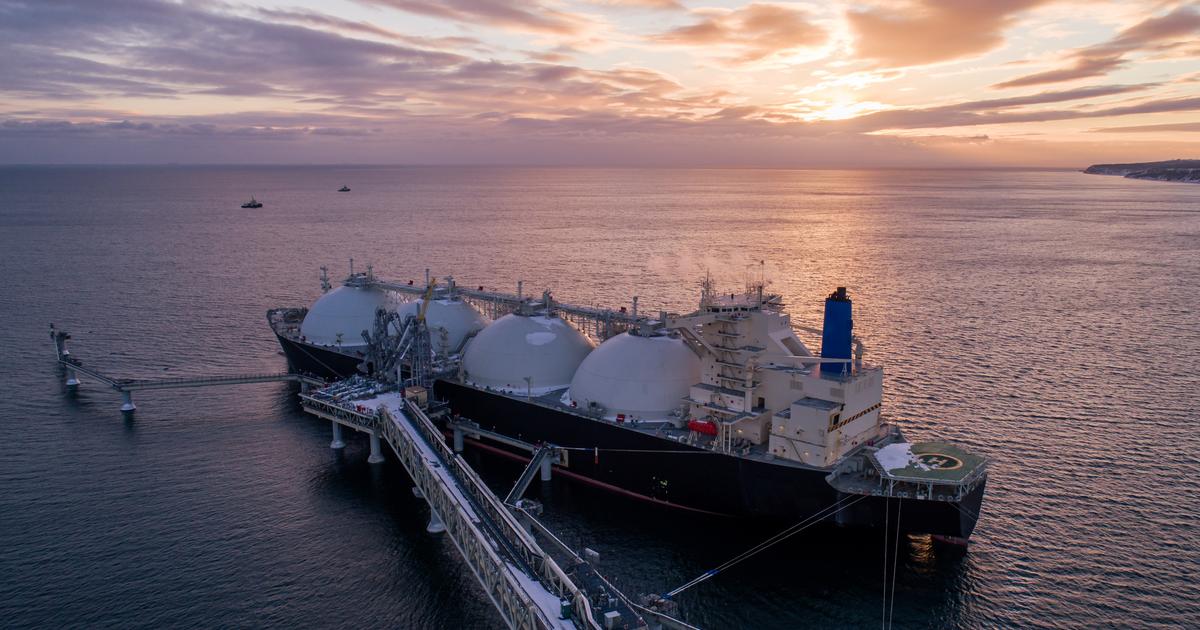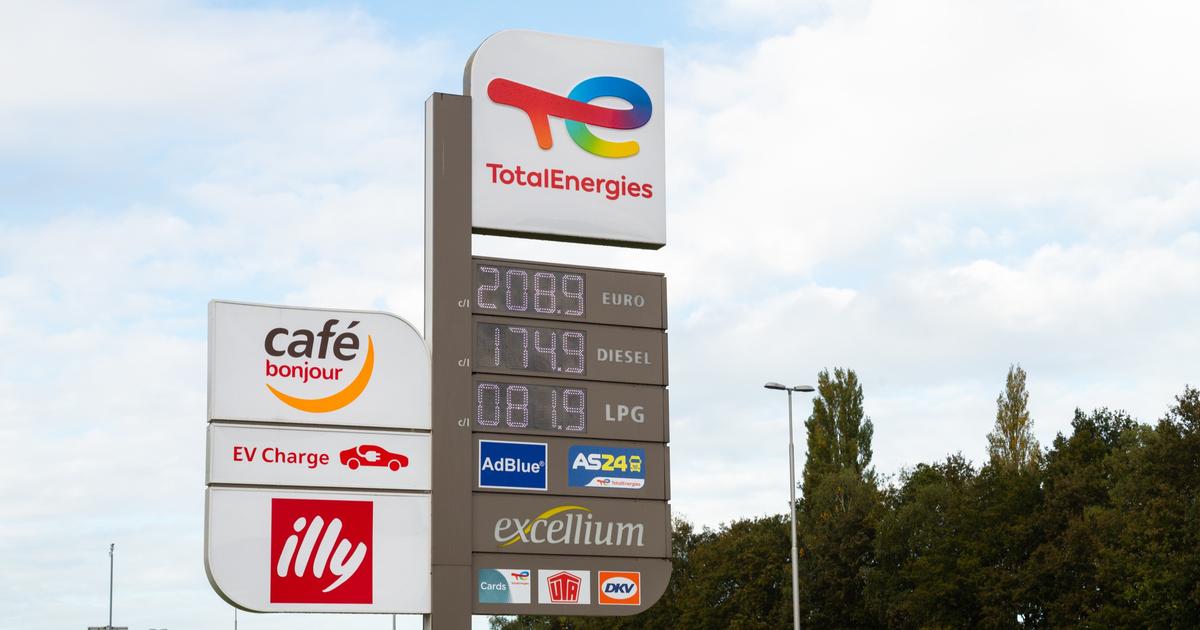What an EU oil embargo on Russia would mean
Created: 05/04/2022Updated: 05/04/2022 07:53
Systems on the industrial site of PCK-Raffinerie GmbH.
Crude oil from Russia arrives at the PCK oil refinery in Schwedt via the "Freundschaft" pipeline - yet.
© Patrick Pleul/dpa
High fuel prices, more unemployment, problems in developing countries: an EU oil embargo against Russia harbors risks.
Questions and answers.
Brussels - It's over, over: According to plans by the EU Commission, Russian oil supplies to the European Union are to be largely stopped by the beginning of next year.
According to information from the German Press Agency, this is what Ursula von der Leyen's authority and the European External Action Service propose for a sixth package of sanctions against Russia.
The new support for Ukraine could be expensive for consumers and the German economy.
An overview.
What exactly is the EU Commission proposing now?
Specifically, according to the information, it is planned that after a phase-out phase of six months an import ban for crude oil will apply and after a phase-out phase of eight months an import ban for oil products will also apply.
It should also play a role whether oil is delivered by pipeline or by ship.
According to the information, far-reaching exemptions are only planned for Hungary and Slovakia.
These two EU countries are currently still getting a large part of their oil requirements from Russia and, due to the lack of access to the sea, do not see themselves in a position to quickly develop other sources of supply.
What could this mean for German consumers?
Federal Minister of Economics Robert Habeck (Greens) expects high "price jumps".
One of the reasons is that Russian oil must be replaced by probably more expensive alternatives from other countries.
In addition, the conversion of refineries and delivery routes means effort and costs.
But hardly anyone dares to predict when and to what extent refueling or heating will become more expensive.
The petroleum trade association Fuels and Energy is very vague: it is “rather unlikely” that there will be no impact on prices at gas stations.
But the market and price development depend on many factors, such as the dollar exchange rate and the decisions of the major producing countries.
The Federal Association of Consumers sees it similarly.
"Nobody can reliably predict how prices will develop after an oil embargo decision," says vzbv mobility expert Marion Jungbluth of the German Press Agency.
"The oil market has always been sensitive and prices volatile."
Energy expert Klaus-Jürgen Gern from the Kiel Institute for the World Economy dares to make the forecast: "Drastic price increases would not be inevitable." From his point of view, this applies at least to an embargo with a transitional period.
Because the gradual move away from Russian oil has already been announced and has probably already been taken into account in the current high prices.
What can be done against the price increase?
The consumer advice center warns the federal government to keep a close eye on the prices at the pump.
You have to intervene if corporations want to enrich themselves in the crisis, says Jungbluth with a view to possible profits from sudden changes in the market situation (windfall profits).
The market transparency office for fuels and the Federal Cartel Office are required.
"The energy tax cut that was passed on June 1, 2022 must be passed on to the consumers on a one-to-one basis," the expert demands.
A price moratorium should also prevent tickets for buses and trains from becoming more expensive.
Saving energy is also important.
At the same time, Jungbluth warns: "Hamster purchases would unnecessarily increase the price or even lead to a shortage, so we advise against it."
What could the embargo mean for the German economy?
It is especially shaking in Schwedt an der Oder in Brandenburg.
There is the PCK refinery operated by the Russian state-owned company Rosneft, which has so far been dependent on Russian oil supplies.
1200 people are employed directly in the factory, as well as hundreds of employees at suppliers and service providers on the site.
How dependent is Germany on Russian oil?
Germany now sees itself reasonably well prepared.
Without Russian deliveries, no “oil crisis” is to be expected, Habeck recently said.
According to him, the share of Russian oil in German consumption has fallen from 35 to 12 percent within a few weeks.
The remaining share of Russian oil of twelve percent is therefore attributable to Schwedt.
Are there any other possible unwanted side effects?
One risk is that an embargo will drive oil prices so high internationally that Russia will end up earning at least as much money with fewer exports as before.
This could mean that oil becomes unaffordable for poorer countries.
In turn, President Vladimir Putin could take advantage of this by selling Russian oil cheaper to poorer countries - on condition that those countries do not participate in Western sanctions against Russia.
Not all politicians in Brussels, but also in capitals like Berlin and Washington, are convinced that an oil embargo is currently the smartest idea.
Why is the Commission nevertheless proposing an embargo?
The great pressure from the public probably played a not inconsiderable part in the decision.
Many people find it difficult to understand that more than two months after the outbreak of war, the EU countries are still buying oil from Russia on a large scale and are thus indirectly supporting Putin's government.
Are sanctions the right way to persuade Russian President Vladimir Putin to withdraw from Ukraine?
Not all Western politicians are at least convinced that an oil embargo makes sense.
© Vadim Ghirda/AP/dpa
According to estimates by the Bruegel think tank, Russian oil worth around 450 million euros was imported into the EU every day.
How badly could the new embargo hit Russia?
Proponents hope the consequences will be serious.
At the beginning of the year, Russia was still exporting half of its daily almost five million barrels of crude oil to Europe.
Half of the three million barrels of oil products, i.e. diesel or heavy oil, also went west.
The oil that has so far flowed through the Druzhba pipeline - about 750,000 barrels per day - is unlikely to be completely diverted to other countries, even with expensive ship transport.
The only pipeline to the east is busy anyway.
Oil gets from Russia to the EU by water, among other things: Since the beginning of the Russian war of aggression against Ukraine, there have been repeated demonstrations (as here by Greenpeace).
© Ole Berg-Rusten/NTB/AP/dpa
Oil production fell by nine percent in April.
Finance Minister Anton Siluanov expects a decline of 17 percent by the end of the year.
Further losses could be painful, as oil revenues account for around 30 percent of Russia's budget.
So far, Moscow has been able to bear the losses.
The high oil prices make up for some of this, because the Kremlin still assumed a significantly lower oil price when planning the budget.
What's next?
This Wednesday, the permanent representatives of the EU states in Brussels want to deal with the proposals sent out by the Commission during the night.
If there are no more major objections from the capitals, the embargo could then be decided in the coming days together with other new Russia sanctions.
What other sanctions are involved?
In addition to the oil embargo, the proposal by the responsible EU institutions also includes new penalties against companies, according to dpa information.
Among the latter are the largest Russian bank, Sberbank, as well as two other banks and TV stations that are specifically spreading misinformation about the Ukraine war.
more on the subject
EU Commission proposes oil embargo against Russia
Federal government supports plans for oil embargo
Without Russian oil?
Search for a solution for Schwedt
The banks should no longer be able to use the international financial communication system Swift.
Actors responsible for atrocities in Ukrainian cities such as Bucha and Mariupol are to be added to the EU list of people and organizations whose assets are frozen.
dpa














